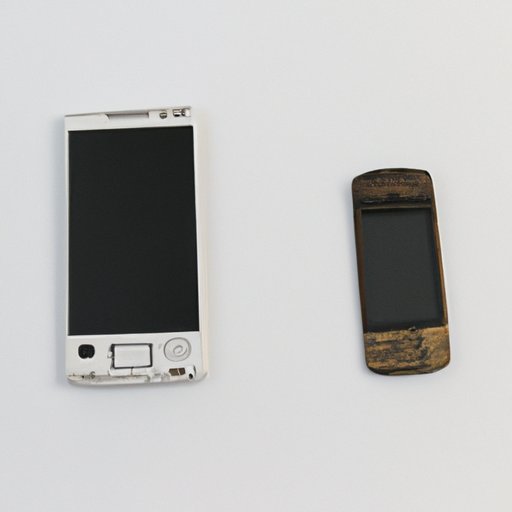Introduction
The term “smartphone” has become commonplace in our modern world. But, when was the first smartphone invented? To answer this question, we must first define what a smartphone is. According to Merriam-Webster, a smartphone is “a cell phone that includes additional software functions (such as e-mail or an internet browser).”
In order to understand the history and development of smartphones, it is important to look at the inventions that preceded them. The first mobile phone call was placed in 1973 by Martin Cooper, an engineer for Motorola. This call marked the beginning of the mobile era, which would eventually lead to the invention of the first smartphone.
Exploring the World’s First Smartphone: What Year Was It Invented?
Over the years, the mobile industry has seen tremendous growth and innovation. As technology advanced, so did mobile phones. In 1992, IBM introduced Simon, the first smartphone. This device combined the features of a cell phone and a personal digital assistant (PDA). Although it was not considered a success due to its high price tag and limited functionality, it marked the beginning of the smartphone era.
In 1996, Nokia released the 9000 Communicator, a device that combined the features of a cellular phone and a PDA. This device had the ability to send and receive emails, browse the web, and access other applications. It was the first commercially successful smartphone and laid the groundwork for future devices.
The next major development in the history of smartphones was the release of the Apple iPhone in 2007. This device revolutionized the way people interacted with their phones. It featured a touchscreen interface, access to the App Store, and other innovative features. It quickly became one of the most popular devices on the market and established Apple as a leader in the mobile industry.
The following year, Google released the Android operating system, which made it easier for developers to create applications for mobile devices. This opened the door for more innovation and competition in the industry. Since then, there have been dozens of new devices released, each offering unique features and capabilities.
How the Smartphone Changed the Way We Live
Smartphones have had a profound impact on our lives. They have changed the way we communicate, shop, and consume media. We can now stay connected to our friends and family no matter where we are. We can also access information instantly and get directions to any destination.
The story behind the invention of the first smartphone is an inspiring one. It began with the vision of two engineers — Martin Cooper and IBM’s Don Estridge — who wanted to combine the features of a cell phone and a PDA. They worked tirelessly to develop the technology that enabled the creation of the first smartphone.
The innovations that followed have allowed us to do things that were previously unimaginable. We now have access to powerful processors, high-resolution displays, and sophisticated cameras. We can also access a wealth of apps, games, and services that make our lives easier and more enjoyable.
Conclusion
Smartphones have come a long way since their inception in 1992. From the first commercially successful device, the Nokia 9000 Communicator, to the revolutionary Apple iPhone, these devices have transformed the way we live and interact with the world. They have enabled us to stay connected to our friends and family, access information instantly, and enjoy a variety of entertainment options.
The invention of the first smartphone marked the beginning of a technological revolution. Today, we are living in a world where mobile devices are becoming increasingly powerful and capable. With 5G networks on the horizon, the future of smartphones looks even brighter.
(Note: Is this article not meeting your expectations? Do you have knowledge or insights to share? Unlock new opportunities and expand your reach by joining our authors team. Click Registration to join us and share your expertise with our readers.)
